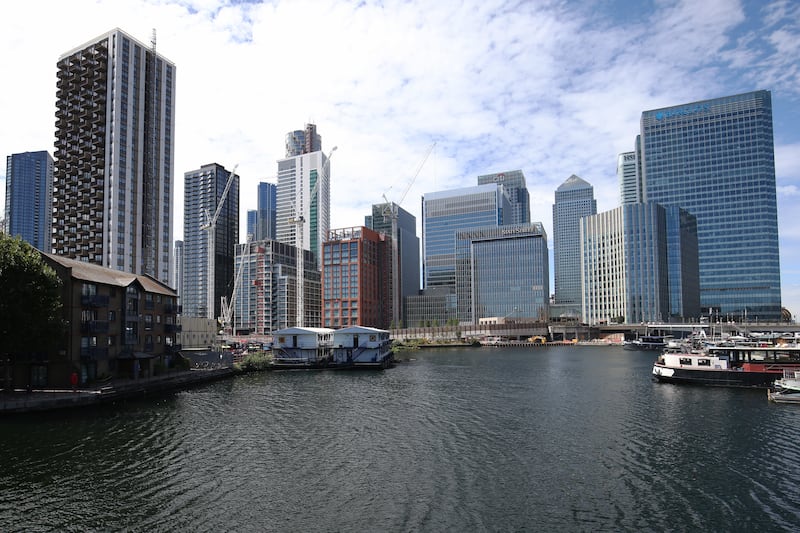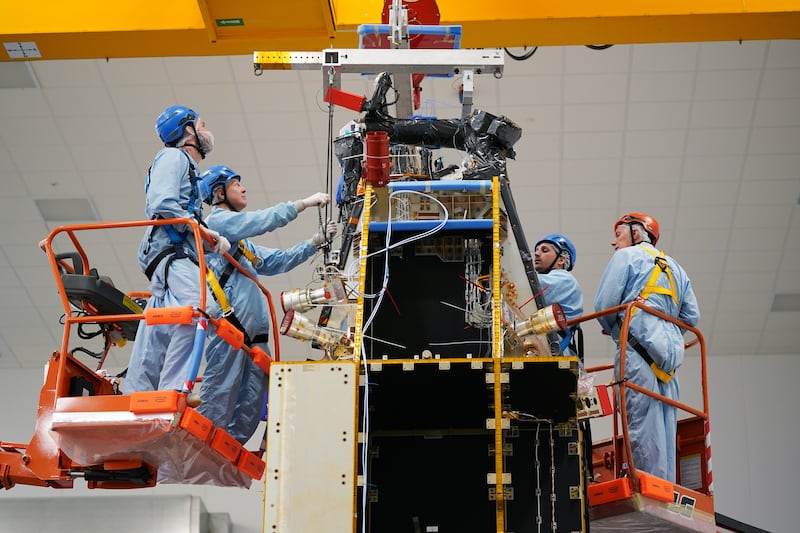ECONOMIC growth strengthened in November with employment rising at its fastest rates in 14 months.
The latest Purchasing Managers' Index (PMI) produced for Ulster Bank by Markit found that output and new orders rose at a faster rate than October while backlogs of work increased for the first time since August.
The rate of costs inflation also quickened, the report said.
Manufacturing production decreased for the first time in 10 months, but the other three monitored sectors posted growth of activity, led by construction.
New export orders however stagnated, blamed on the strength of sterling.
Output generally was higher, pushing up staffing levels with three of the four sector posting increased employment - apart from manufacturing.
The rate of input cost inflation quickened for the second successive month in November and was faster than the UK average, but remained relatively muted.
Higher staff costs had reportedly been the main factor leading input prices to rise, but the strength of sterling against the euro and lower raw material prices had helped to limit cost burdens.
Companies increased their output prices for the first time in four months, albeit marginally. Some panellists reported having raised charges as part of attempts to improve profitability. On the other hand, other firms were able to pass cost savings on to clients.
Ulster Bank's chief economist in the north Richard Ramsey said: “Northern Ireland's private sector reported a notable improvement in business conditions in November. The pace of growth in business activity and new orders accelerated relative to the modest levels of expansion recorded in October.
"However, these rates of growth remain below the pre-recession historical average. Meanwhile firms increased their staffing levels at their fastest rate in 14 months. Furthermore, the pace of employment growth continues to rise at a faster rate than the pre-downturn long-term average."
However, Mr Ramsey said that behind the headline figures, performance at a sectoral level "was somewhat mixed".
"The overall pick-up in the rate of growth in business activity, new orders and employment was due to the services and construction industries. The latter posted its strongest rates of growth in output and new orders in over a year," he added.
“The improvement in services and construction firms concealed a slowdown in retail sales and outright contraction within manufacturing. Retail sales are easing from a period of very strong growth. However the performance of the manufacturing sector is of more concern, with output, new orders and employment all falling in November.
"Manufacturers have reduced their headcount in each of the last three months. This comes ahead of a significant number of high profile redundancies, already announced, but due to take place next year.
"While the return of pay rises coupled with 'noflation' will support consumer spending and therefore the retail sector next year, 2016 does not look as if it will be a great year for manufacturing.”







